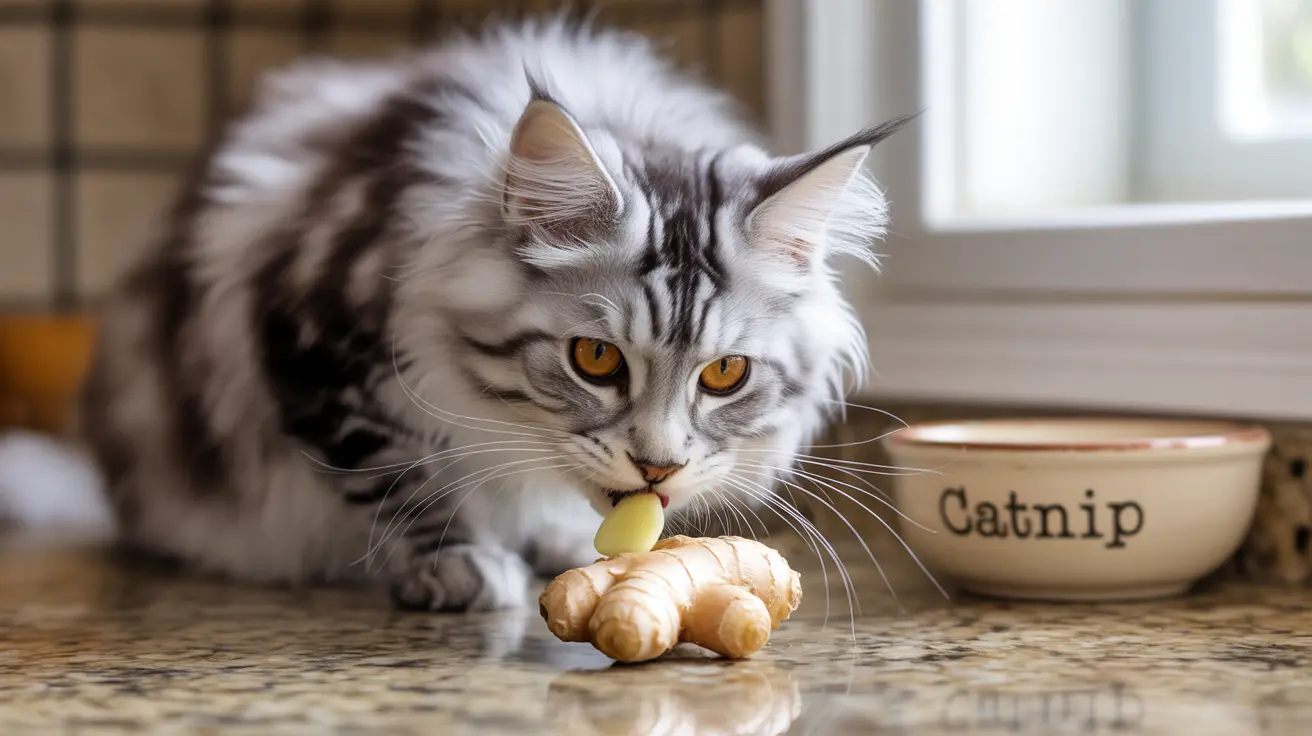Understanding Ginger's Safety for Cats
Fresh ginger root is generally considered non-toxic to cats when given in small, controlled amounts. However, this doesn't automatically make it safe for all cats in all situations. Each cat's individual health status, age, and medical history play crucial roles in determining whether ginger is appropriate.
The key is moderation and veterinary supervision. While some cats may benefit from minimal amounts of ginger, others might experience adverse reactions or complications, especially if they have underlying health conditions.
Potential Health Benefits of Ginger for Cats
When properly administered, ginger may offer several health benefits for cats:
Digestive Support
Ginger's natural compounds can help ease digestive discomfort and reduce nausea, particularly beneficial for cats experiencing motion sickness or mild stomach upset.
Anti-inflammatory Properties
The active compounds in ginger, particularly gingerols, possess anti-inflammatory properties that might help cats with arthritis or other inflammatory conditions.
Antioxidant Effects
Ginger contains powerful antioxidants that can support overall immune health and potentially provide cognitive benefits for aging cats.
Safe Administration Guidelines
When introducing ginger to your cat, follow these essential guidelines:
Proper Dosage
Start with minimal amounts - a tiny piece of fresh ginger or a small pinch of powder mixed into their regular food. Always begin with less than you think necessary and observe your cat's reaction.
Preparation Methods
Only use fresh ginger root or pure powder. Avoid processed ginger products, including teas, supplements, or ginger-flavored foods, as these often contain additional ingredients that could harm your cat.
Potential Risks and Warning Signs
Watch for these potential adverse reactions when giving ginger to your cat:
- Gastrointestinal upset (vomiting, diarrhea)
- Allergic reactions (itching, swelling)
- Changes in behavior or appetite
- Signs of digestive discomfort
Frequently Asked Questions
Is fresh ginger safe for cats to eat, and how much can I give them?
Fresh ginger is generally safe in very small amounts, but should only be given under veterinary guidance. Start with a tiny piece (about the size of a grain of rice) mixed into food, and only if approved by your vet.
What health benefits can ginger provide for my cat?
Ginger may help with nausea, motion sickness, inflammation, and digestive issues. However, benefits vary between individuals and should not be considered a replacement for veterinary treatment.
Are there any risks or side effects if my cat eats ginger?
Yes, potential risks include gastrointestinal upset, allergic reactions, and medication interactions. Some cats may also experience vomiting or diarrhea if given too much.
How should I introduce ginger to my cat's diet safely?
Start with minimal amounts mixed into regular food, and only after consulting your veterinarian. Monitor your cat closely for any adverse reactions.
Can I give my cat ginger supplements or ginger-flavored foods?
It's not recommended to give cats ginger supplements or flavored foods, as these often contain additional ingredients that could be harmful. Stick to fresh ginger or pure powder if approved by your vet.
Conclusion
While ginger can potentially offer health benefits for cats, it should never be administered without first consulting a veterinarian. Every cat is unique, and what works for one may not be suitable for another. Always prioritize your cat's safety by starting with minimal amounts and carefully monitoring their response to this spice.






